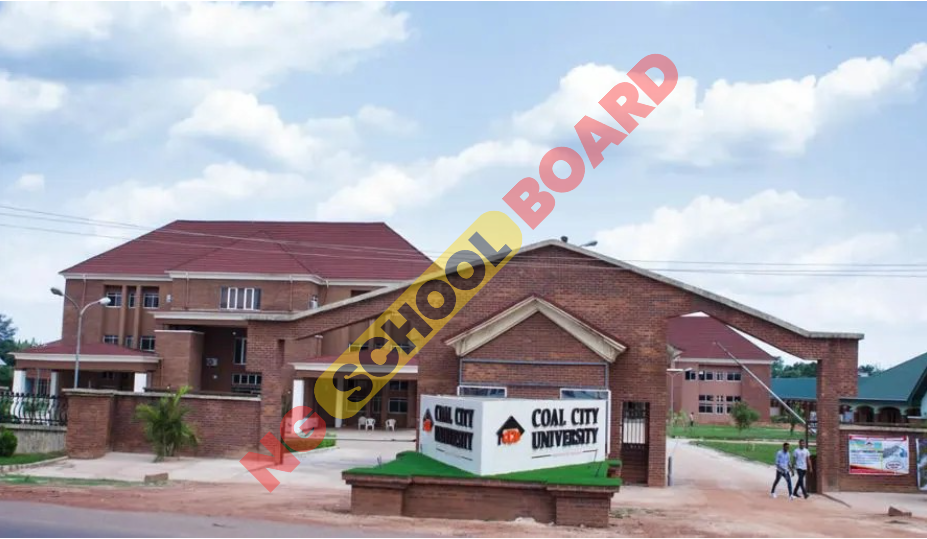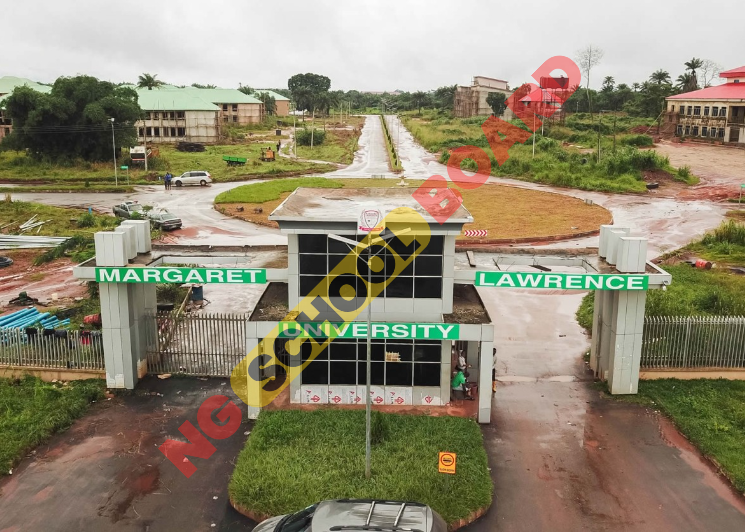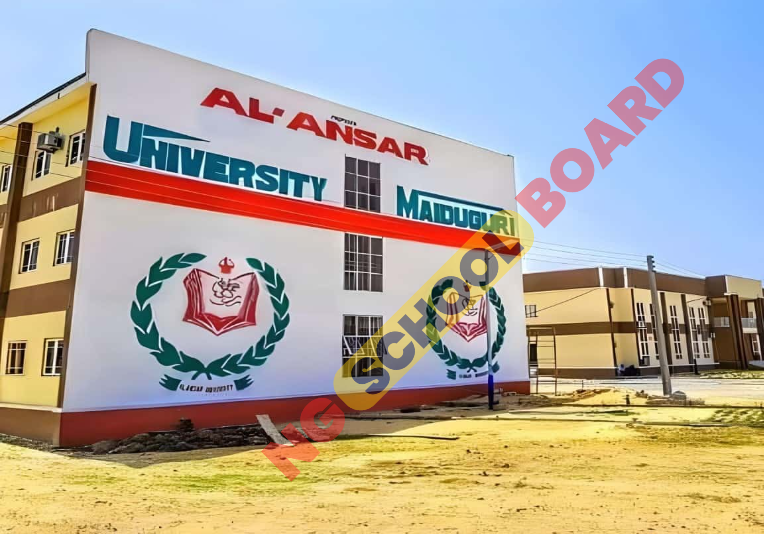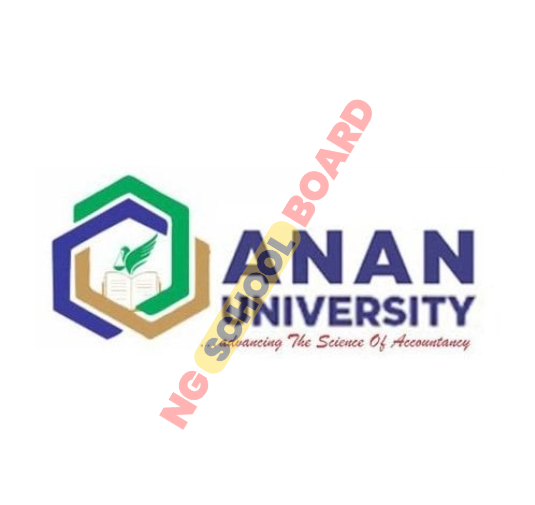Programs Offered at Coal City University, Nigeria
Coal City University (CCU) is a state-owned university located in Enugu, Nigeria. Established in 1981 as Anambra State University of Technology, it was later renamed the Enugu State University of Science and Technology before getting its current name in 2019.
Coal City University has a student population of over 30,000 enrolled in various programs across its faculties.

ALSO SEE:
Coal City University School Fees
Arthur Javis University Courses Offered
Confluence University of Science and Technology Osara Courses Offered
Legacy University Courses Offered
Introduction to Coal City University
As a leading university in southeastern Nigeria, Coal City University aims to provide quality education that equips students with the knowledge and competencies to excel in their careers and contribute to national development. The university has a staff strength of over 1,500 comprising renowned academics and researchers.
Coal City University maintains linkages with partner institutions locally and overseas to facilitate student exchanges, collaborative research, and more. The university also engages in impactful community service initiatives through programs focused on technology transfer, youth empowerment, and supporting rural communities.
The university holds full accreditation by Nigeria’s National Universities Commission. Its degree programs have also earned international accreditation from organizations like ABET, CPA, and ICAN affirming their high standards. Coal City University strives to continually enhance its offerings and produce graduates able to compete globally. READ MORE HERE.
Faculties and Academic Departments
Coal City University runs academic programs through the following 3 faculties:
Faculty of Natural and Applied Sciences
The Faculty of Natural and Applied Sciences covers the study of natural systems and the application of scientific knowledge.
Department of Mathematics
Undergraduate programs:
- B.Sc. Mathematics
- B.Sc. Industrial Mathematics
Postgraduate programs:
- M.Sc. Mathematics
- Ph.D. Mathematics
Department of Statistics
Undergraduate programs:
- B.Sc. Statistics
Postgraduate programs:
- M.Sc. Statistics
- Ph.D. Statistics
Department of Computer Science
Undergraduate programs:
- B.Sc. Computer Science
Postgraduate programs:
- M.Sc. Computer Science
- Ph.D. Computer Science
Department of Microbiology
Undergraduate programs:
- B.Sc. Microbiology
Postgraduate programs:
- M.Sc. Microbiology
- Ph.D. Microbiology
Department of Biochemistry
Undergraduate programs:
- B.Sc. Biochemistry
Postgraduate programs:
- M.Sc. Biochemistry
- Ph.D. Biochemistry
Department of Physics
Undergraduate programs:
- B.Sc. Physics
Postgraduate programs:
- M.Sc. Physics
- Ph.D. Physics
Department of Geology
Undergraduate programs:
- B.Sc. Geology
Postgraduate programs:
- M.Sc. Geology
- Ph.D. Geology
Department of Chemistry
Undergraduate programs:
- B.Sc. Chemistry
Postgraduate programs:
- M.Sc. Chemistry
- Ph.D. Chemistry
Programs offered by the natural sciences faculty equip students with relevant technical skills and analytical competencies for STEM-related careers or further education.
Faculty of Management and Social Sciences
This faculty covers disciplines relating to human relations, society, and business management.
Department of Accounting
Undergraduate programs:
- B.Sc. Accounting
Postgraduate programs:
- M.Sc. Accounting
- M.Sc. Forensic Accounting and Fraud Management
- Ph.D Accounting
Department of Banking and Finance
Undergraduate programs:
- B.Sc. Banking and Finance
Postgraduate programs:
- M.Sc. Banking and Finance
- Ph.D. Banking and Finance
Department of Business Administration
Undergraduate programs:
- B.Sc. Business Administration
Postgraduate programs:
- MBA
- Ph.D. Business Administration
Department of Marketing
Undergraduate programs:
- B.Sc. Marketing
Postgraduate programs:
- M.Sc. Marketing
- Ph.D. Marketing
Department of Economics
Undergraduate programs:
- B.Sc. Economics
Postgraduate programs:
- M.Sc. Economics
- Ph.D. Economics
Department of Political Science and International Relations
Undergraduate programs:
- B.Sc. Political Science
- B.Sc. International Relations
Postgraduate programs:
- M.Sc. Political Science
- M.Sc. International Relations
- Ph.D. Political Science
- Ph.D. International Relations
Department of Public Administration
Undergraduate programs:
- B.Sc. Public Administration
Postgraduate programs:
- MPA
- Ph.D. Public Administration
Department of Sociology
Undergraduate programs:
- B.Sc. Sociology
Postgraduate programs:
- M.Sc. Sociology
- Ph.D. Sociology
Department of Mass Communication
Undergraduate programs:
- B.Sc. Mass Communication
Postgraduate programs:
- M.Sc. Mass Communication
- Ph.D. Mass Communication
Programs offered enable students to gain insights into human relations, social institutions, governance, and business operations.
Faculty of Education
This faculty equips students with the knowledge and teaching skills for education-focused careers.
Department of Arts Education
Undergraduate programs:
- B.A. Education (English/French/History)
Postgraduate programs:
- M.Ed. Arts Education
- Ph.D. Education (Arts)
Department of Science Education
Undergraduate programs:
- B.Sc. Education (Mathematics/Biology/Chemistry/Physics)
Postgraduate programs:
- M.Ed. Science Education
- Ph.D. Education (Sciences)
Department of Social Science Education
Undergraduate programs:
- B.Sc. Education (Economics/Political Science/Geography/Sociology)
Postgraduate programs:
- M.Ed. Social Sciences Education
- Ph.D. Education (Social Sciences)
Department of Early Childhood Education
Undergraduate programs:
- B.Ed. Early Childhood Education
Postgraduate programs:
- M.Ed. Early Childhood Education
- Ph.D. Early Childhood Education
Department of Special Needs Education
Undergraduate programs:
- B.Ed. Special Needs Education
Postgraduate programs:
- M.Ed. Special Needs Education
- Ph.D. Special Needs Education
The education faculty programs equip students with the knowledge of educational theory, teaching methodologies, curriculum development, assessment and pedagogy to excel as educators in various specializations and levels.
Application Requirements
To apply for undergraduate programs at Coal City University, prospective candidates require:
- 5 credits in WASSCE/NECO including English, Mathematics and other relevant subjects
- Minimum UTME score of 180
- Completed online or hard copy application form
- Screening may apply for some programs
For postgraduate programs, candidates require:
- Minimum 2:2 class degree for undergraduate studies
- Completed postgraduate application form
- Relevant work experience
- Department may conduct entry exams or interviews
Tuition Fees and Funding
The tuition fees at Coal City University depend on the program level, ranging annually as follows:
- Undergraduate programs: N150,000 – N300,000
- Postgraduate programs: N350,000 – N500,000
- Ph.D programs: N600,000 – N1,000,000
Coal City University provides scholarships, grants and financial assistance for qualifying students. Installment payment structures are also available. Students can access bank loans and apply for paid internships on campus to support their education.
Facilities at Coal City University
Coal City University is well-resourced to support students’ learning and campus life. Key facilities include:
- Extensive library with over 800,000 print and digital resources
- State-of-the-art laboratories for sciences, engineering and medicine
- Standard lecture halls equipped with audio-visual resources
- Computer labs with fast broadband connectivity
- Language laboratories with multimedia resources
- Sports complex, courts and gymnasium
- On-campus health centers and pharmacy
- Secure student hostels with shared kitchens
- Cafeterias serving local and continental cuisine
- Regular bus shuttle services across campus
- Theater for cultural activities and events
- Enterprise incubation hub for innovators
Conclusion
Coal City University offers a comprehensive range of undergraduate and postgraduate programs across diverse fields through
Here is the continued overview of Coal City University:
Research Centers
Coal City University also houses the following specialized research centers:
- Center for Malaria and Tropical Disease Research
- Center for Petroleum and Environmental Research
- Center for Renewable Energy Research
- Center for Entrepreneurship and Regional Economic Development
- Center for Data Sciences and Artificial Intelligence
- Center for Public Health and Development Research
The centers provide platforms for collaborative research between faculty, students, and partners on impactful projects.
International Partnerships
Coal City University maintains partnerships with these overseas universities:
- Michigan State University, USA
- University of Surrey, UK
- University of Pretoria, South Africa
- Tianjin University, China
- University of Melbourne, Australia
These facilitate student exchanges, faculty visits, research collaborations, and other engagement.
Online and Part-Time Programs
Coal City University offers the following through flexible learning:
- Online undergraduate degree programs
- Online postgraduate programs
- Part-time evening degree programs
- Professional diploma and certificate courses
This allows working students or those unable to attend full-time programs on campus to access Coal City University’s offerings.
Conclusion
Coal City University provides students with a conducive environment for holistic education through its robust degree offerings, world-class facilities, research initiatives, flexible learning modes and global partnerships. Students are equipped with both academic excellence and practical competencies to excel in varying career fields in Nigeria and worldwide.
FAQs
Does CCU provide accommodation for students?
Yes, CCU has dedicated hostels on campus that can accommodate over 50% of the full-time student population. The hostels have shared amenities.
What student support services are available?
- Career advisory services
- Counseling and health services
- Academic writing support
- Extracurricular programs
- Entrepreneurship mentoring
- Scholarships and financial aid
- Sports and recreation facilities
How safe is the university environment?
CCU has 24/7 security across campus, access control systems in hostels, CCTV surveillance, emergency hotlines and regular safety audits to ensure a protected environment.
Does CCU accept international students?
Yes, CCU welcomes international students from all over the world. International students need to meet English language requirements and equivalent academic qualifications from their home countries.
What accommodation options exist for postgraduate students?
CCU has dedicated hostel facilities for postgraduate students with enhanced amenities. Postgraduate students also have access to affordable off-campus housing options around the university.

Hello, I’m Emeka by name, an article writer with a passion for words and storytelling. I have a knack for crafting engaging and informative content that captivates readers and delivers valuable insights. Whether it’s exploring the latest trends, sharing knowledge, or diving into creative narratives, I’m here to bring words to life. Join me on a journey through the world of ideas and stories as we explore the power of written expression.





